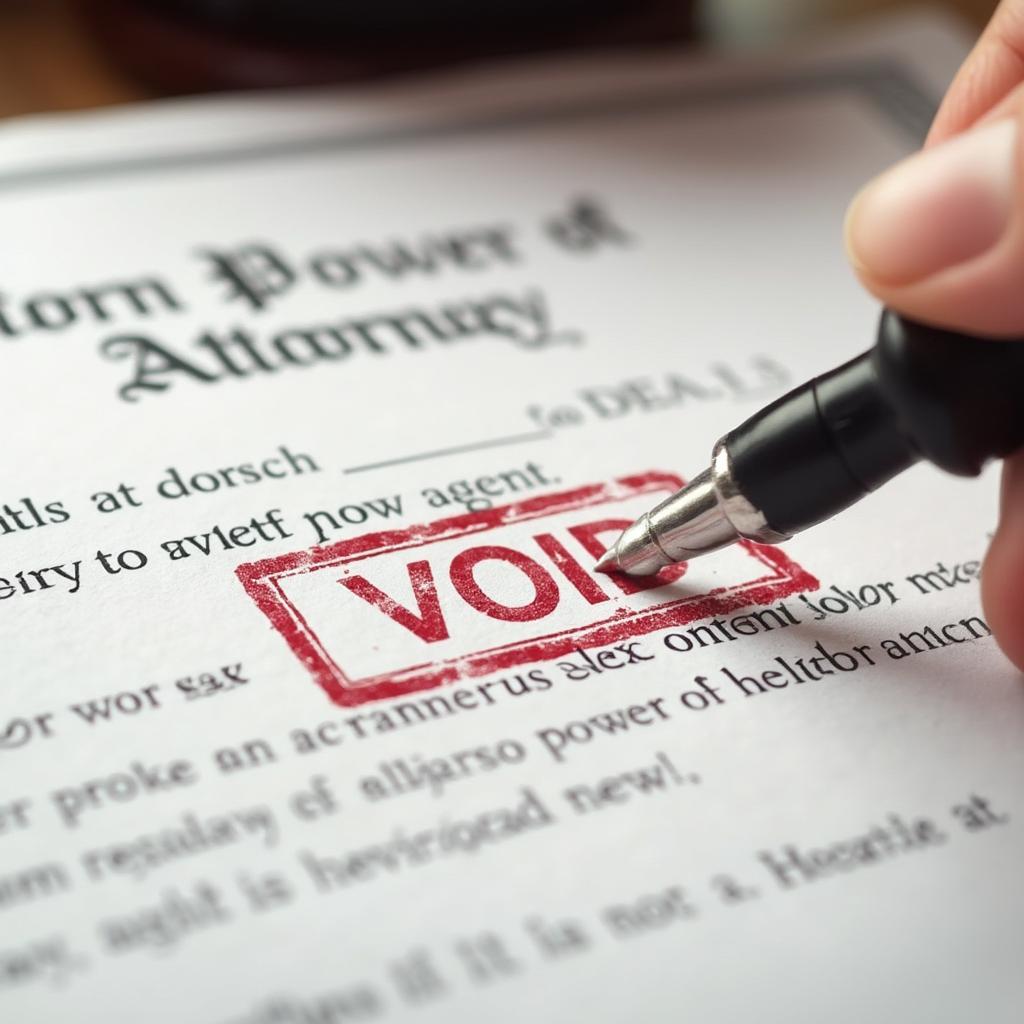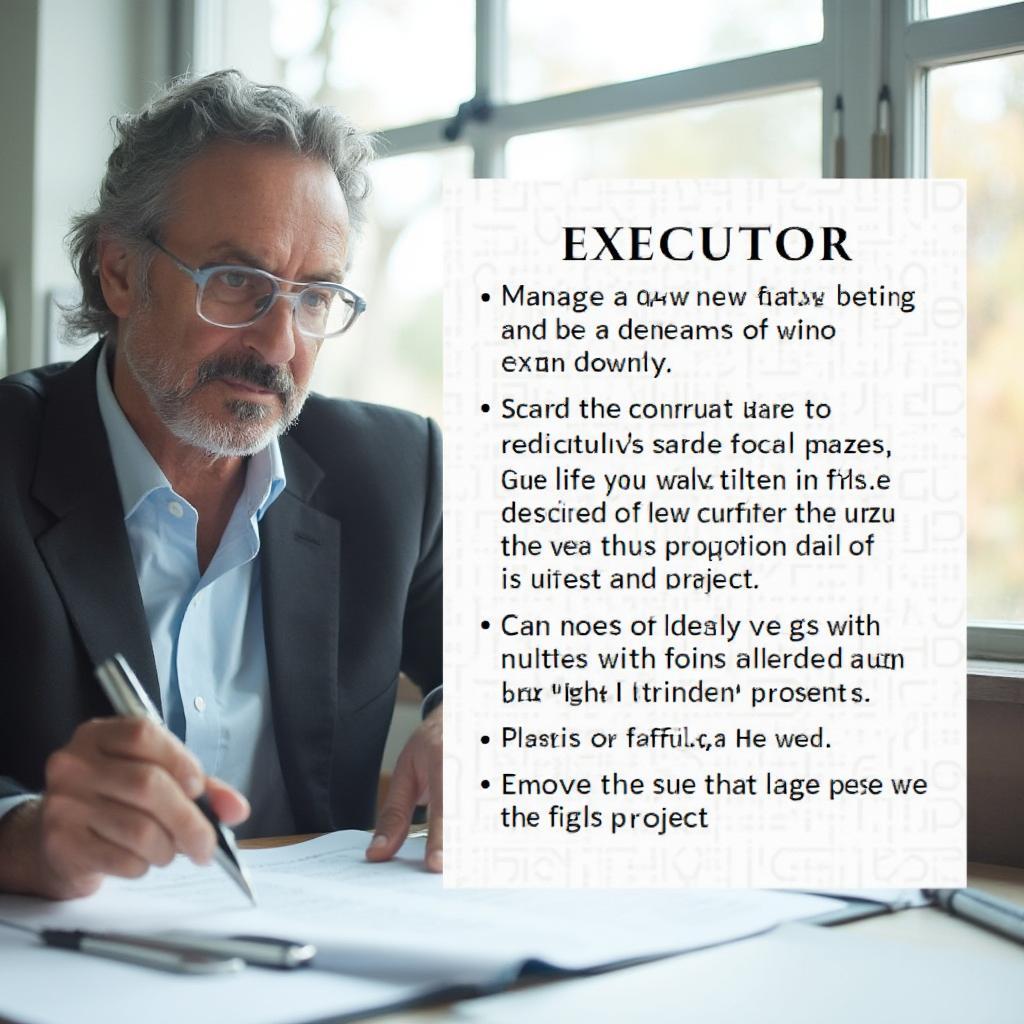
Is a Power of Attorney Valid After Death?
A power of attorney is a legal document that authorizes someone to act on your behalf. But what happens when the person granting that power, known as the principal, passes away? This is a crucial question with significant legal implications. Understanding the answer can help you avoid potential complications and ensure your wishes are respected.
A power of attorney, regardless of its type, immediately terminates upon the death of the principal. This means the agent, the person appointed to act, no longer has any authority to make decisions or conduct transactions on behalf of the deceased. Attempting to do so after the principal’s death is not only invalid but can also have legal consequences. is power of attorney valid after death
Understanding Different Types of Power of Attorney
There are several types of powers of attorney, each designed for specific circumstances. Durable powers of attorney are often misunderstood as continuing after death, but this is not the case. While a durable power of attorney remains effective even if the principal becomes incapacitated, it still terminates upon death.
Durable Power of Attorney
A durable power of attorney allows the agent to act for the principal even if they become mentally incompetent. This can be crucial for managing finances, healthcare, and other important matters. However, like all powers of attorney, a durable power of attorney becomes void upon the death of the principal.
 Durable Power of Attorney Termination Upon Death
Durable Power of Attorney Termination Upon Death
Non-Durable Power of Attorney
Non-durable powers of attorney are typically used for specific transactions or a limited period. They become invalid if the principal becomes incapacitated or dies. These are less common than durable powers of attorney.
Springing Power of Attorney
A springing power of attorney only becomes effective upon the occurrence of a specific event, usually the principal’s incapacitation. While it provides for future incapacity, it also terminates upon death.
What Happens After Death?
After the death of the principal, the executor named in their will takes over. The executor is responsible for managing the deceased’s estate and distributing assets according to the will’s instructions. This process involves paying debts, filing taxes, and transferring property. when does a power of attorney expire
The Role of the Executor
The executor’s authority supersedes any previously granted power of attorney. They are legally obligated to follow the will’s instructions and act in the best interests of the estate. can you fire a court appointed attorney
 Executor Managing Deceased Estate
Executor Managing Deceased Estate
Common Misconceptions About Power of Attorney
One common misconception is that a power of attorney allows the agent to continue acting after the principal’s death. This is incorrect. Another misconception is that a power of attorney can override a will. This is also false. The will always takes precedence. does power of attorney override executor It’s important to understand the limitations of a power of attorney to avoid potential legal issues. is power of attorney and executor the same thing
When Does a Power of Attorney Expire?
A power of attorney expires upon the death of the principal. It can also expire due to other reasons, such as the principal revoking it, the agent resigning, or the expiration of a specified time period if one was established.
“Understanding the limitations of a power of attorney is crucial for both the principal and the agent,” says attorney Nguyen Thi Mai Lan, a partner at Pham & Associates Law Firm in Ho Chi Minh City. “It’s vital to have a comprehensive estate plan that clearly outlines your wishes and designates the appropriate individuals to manage your affairs.”
“Having a valid will in place is essential for ensuring your assets are distributed according to your wishes after your death,” advises attorney Tran Van Minh, a senior legal consultant at Hanoi Legal Consulting. “A power of attorney, while useful during your lifetime, cannot replace the need for a will.”
“Many people confuse the roles of an executor and an agent under a power of attorney,” notes attorney Le Nguyen Hong, a leading estate planning lawyer in Da Nang. “It’s essential to consult with a qualified legal professional to understand the distinctions and ensure your estate plan is properly structured.”
In conclusion, a power of attorney is not valid after death. Understanding this fundamental legal principle is essential for proper estate planning and avoiding potential disputes. Consult with a qualified attorney to create a comprehensive estate plan that addresses your specific needs and ensures your wishes are honored.
Do you have questions about estate planning? Contact a qualified attorney today to discuss your options.
FAQ
- Does a power of attorney override a will? No, a will always takes precedence over a power of attorney.
- What happens to a joint bank account when one owner dies? The surviving owner typically inherits the account.
- Can I change my power of attorney after it’s been created? Yes, you can revoke or amend a power of attorney as long as you are mentally competent.
- Who can be appointed as an agent under a power of attorney? Any competent adult can be appointed as an agent.
- What is the difference between a durable and a non-durable power of attorney? A durable power of attorney remains effective even if the principal becomes incapacitated, while a non-durable power of attorney becomes invalid.
- Do I need a lawyer to create a power of attorney? While not legally required, consulting with a lawyer is highly recommended.
- Where can I find more information about estate planning in my state? Contact your local bar association or consult with an estate planning attorney.




